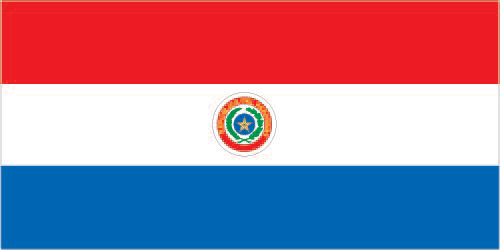
Paraguay achieved its independence from Spain in 1811. In the disastrous War of the Triple Alliance (1865-70) - between Paraguay and Argentina, Brazil, and Uruguay - Paraguay lost two-thirds of its adult males and much of its territory. The country stagnated economically for the next half century. Following the Chaco War of 1932-35 with Bolivia, Paraguay gained a large part of the Chaco lowland region. The 35-year military dictatorship of Alfredo STROESSNER ended in 1989, and, despite a marked increase in political infighting in recent years, Paraguay has held relatively free and regular presidential elections since the country's return to democracy.
hydropower, timber, iron ore, manganese, limestone
arable land: 9.59%
permanent crops: 0.22%
other: 90.19% (2011)
6,703,860 (July 2014 est.)
country comparison to the world: 105
mestizo (mixed Spanish and Amerindian) 95%, other 5%
Roman Catholic 89.6%, Protestant 6.2%, other Christian 1.1%, other or unspecified 1.9%, none 1.1% (2002 census)
Spanish (official), Guarani (official)
definition: age 15 and over can read and write
total population: 93.9%
male: 94.8%
female: 92.9% (2010 est.)
Asuncion
constitutional republic
14 May 1811 (from Spain)
Independence Day, 14 May 1811 (observed 15 May)